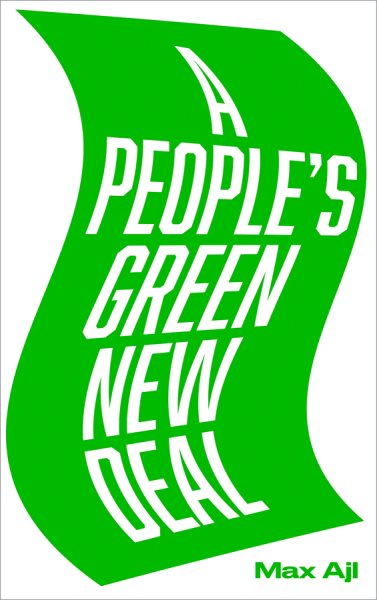
Max Ajl’s��A People’s Green New Deal��intervenes in current debates regarding green planning, green future, green stimuli, and eco-socialism. It surveys a wide range of existing literature on the ecological and social crisis, ranging from ruling-class “great transitions,” to eco-modernist��elixirs��of��the��right and��the��left which bank on technological solutions to today’s social and ecological problems. It then considers and��critiques an array of liberal, left-liberal, and social democratic proposals, some of them going under the eco-socialist moniker, and shows how they rest on continued exploitation and primitive accumulation of the periphery.��
A People’s Green New Deal contributions lie in, first, using frameworks of dependency theory, accumulation on a world scale, and ecologically uneven exchange to illuminate the costs and consequences of distinct approaches to the climate crisis, left and right. Second, the book’s emphasis on agriculture, land use, and agro-ecology makes it unique amongst books on the Green New Deal and parallel debates. Its emphasis on decolonization, national sovereignty, anti-imperialism, and climate debt repayments from the North to the South is a third contribution. A fourth is how it deals with technology.
This review forum assesses the contribution of��A People’s Green New Deal.��Sakshi �����ٳܲ��ٱ����APGND��in terms of a counter-epistemology to Eurocentric and empire-blind resolutions, if not really solutions, to the social and ecological crises to which mainstream Green New Deals are addressed.��Sheetal Chhabria ����������������APGND’s contribution to thinking on a planetary scale about appropriate planning for a just transition, while criticizing the book’s uncritical embrace of certain Indian nationalist tropes. Güney Işıkara raises questions regarding political agency and organization, the role of national-level planning in any form of national-level green transition, and how to approach anti-imperialism on a world scale.����
Read the contributions:



 Now is the hour of our collective discontent. In order to pursue the agenda set out for this blog post series, namely: ‘to precisely identify the strategic, structural/epochal, or more contingent factors involved in the emergence of particular state–capital hybrids, as well as the specific institutional, organizational, and legal forms that facilitate such emergence’ (
Now is the hour of our collective discontent. In order to pursue the agenda set out for this blog post series, namely: ‘to precisely identify the strategic, structural/epochal, or more contingent factors involved in the emergence of particular state–capital hybrids, as well as the specific institutional, organizational, and legal forms that facilitate such emergence’ (

